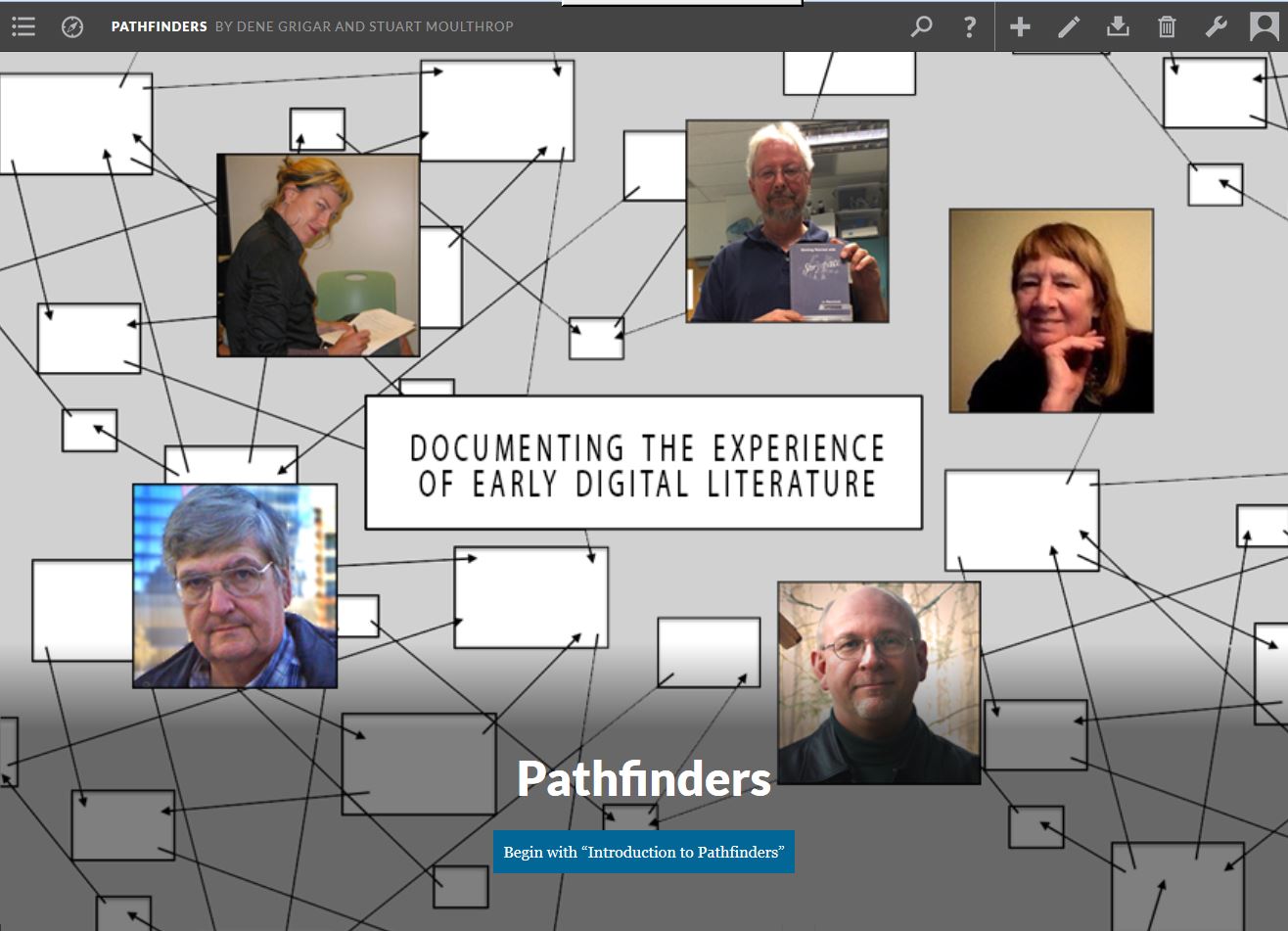The idea of developing a lab in which scholars could experience electronic literature on computers for which works were originally produced was born in the mid-1990s out of Grigar's own collection of computers and library of works. She expanded the idea with an exhibit, titled
“Early Authors of Electronic Literature: The Eastgate School, Voyager Artists, and Independent Productions,”that she curated for the
Electronic Literature Organization 2008 Conference and Media Art Festival held at Washington State University Vancouver (WSUV) in June 2008. The positive response received from the exhibit led her to search for a permanent space on the WSUV campus that would provide ongoing access to electronic literature from the 1980s onward for herself and others interested in scholarship in this area of research.
Two years later in July 2010, she was assigned space in WSUV’s Classroom Building (VCLS 210). ELL opened in spring 2011 with 16 legacy computers she had collected. Later that same semester the lab welcomed its first visitor, Anne Balsamo (UT Dallas), who had come to WSUV to keynote at the university’s Research Showcase. Following her visit, Balsamo provided administrators and Grigar with a list of recommendations. One of these recommendations suggested continuing the effort to build out ELL to include post-doctoral research and grant-writing in support of research.
Since 2013 ELL has hosted four post-doctoral scholars and has served as the site of numerous research projects, including
Pathfinders (Grigar and Moulthrop, 2015)
, Traversals (Moulthrop and Grigar, 2017), and prominent exhibits of electronic literature at the
Library of Congress,
International Symposium on Electronic Art and other venues. It has been supported by grants, most notably from the National Endowment for the Humanities (2013), and has itself helped to support undergraduate research
 projects for 25 students. One of these––Chronicles: Documenting the Articulation of Culture in Video Games (2016), produced by Madeleine Brookman––resulted in Brookman receiving the 2016 Emeritus Society Undergraduate Research Award, the 2015 CAS Summer Mini-Grant, and the 2014-5 Auvril Fellowship.
projects for 25 students. One of these––Chronicles: Documenting the Articulation of Culture in Video Games (2016), produced by Madeleine Brookman––resulted in Brookman receiving the 2016 Emeritus Society Undergraduate Research Award, the 2015 CAS Summer Mini-Grant, and the 2014-5 Auvril Fellowship.
Beginning 2016 ELL has served as the site for preserving and archiving collections belonging to the Electronic Literature Organization, Marjorie C. Luesebrink, and Grigar's own collection. ELL staff have also begun preparing the digital archives for Turbulence.org and the trAce Online Writing Centre for long-term hosting at Compute Canada.
Grigar was awarded the Lewis E. and Stella G. Buchanan Distinguished Professorship in the fall 2017. This provided funding to hire and train four undergraduate researchers. This increased staffing extended ELL’s scope by hosting documentation activities, including a Wikipedia-A-Thon, live Traversals, workshops, and scholar talks. ELL’s membership in The Consortium on Electronic Literature Project (CELL Project) reflects the growing role of ELL as a leading lab in the area of born digital media.
Contents of ELL
To date, ELL contains 61 functioning vintage Macintosh & PC computers, from 1977 onward; a large collection of vintage software, including HyperCard 1.0, HyperCard 2.0, and Storyspace; peripherals, such as Kodak overhead projectors, dot matrix printers, and external floppy disk readers; and a library of over 300 works of electronic literature and other media, many of which are one-of-a-kind and rare. The ELL Catalog offers a searchable database of all of the computers and literary works found in ELL. During the fall 2017, Grigar and her undergraduate researchers produced a detailed catalog, built on code produced by Greg Philbrook, of the early pre-web works Grigar owns or manages for others.
 projects for 25 students. One of these––Chronicles: Documenting the Articulation of Culture in Video Games (2016), produced by Madeleine Brookman––resulted in Brookman receiving the 2016 Emeritus Society Undergraduate Research Award, the 2015 CAS Summer Mini-Grant, and the 2014-5 Auvril Fellowship.
projects for 25 students. One of these––Chronicles: Documenting the Articulation of Culture in Video Games (2016), produced by Madeleine Brookman––resulted in Brookman receiving the 2016 Emeritus Society Undergraduate Research Award, the 2015 CAS Summer Mini-Grant, and the 2014-5 Auvril Fellowship.